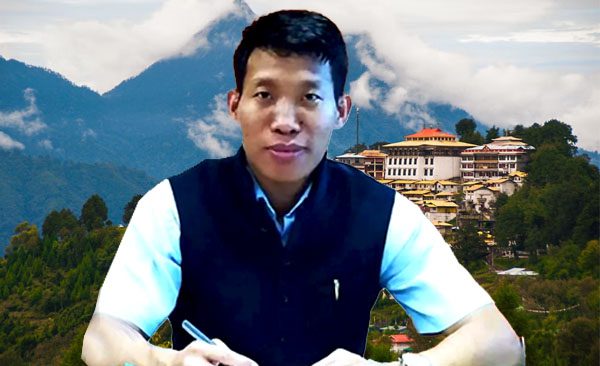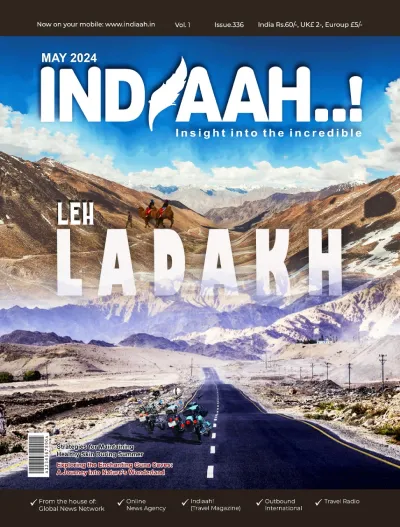
Nestled in the northeastern corner of India, Arunachal Pradesh is a hidden gem, often overshadowed by more well-known tourist destinations. With its sweeping valleys, snow-capped peaks, and culturally rich tribes, this state offers something truly unique — but it’s under the leadership of Ranphoa Ngowa, the state’s Tourism Secretary, that the world is starting to take notice.
“It’s Not Just About Tourists, It’s About Responsible Travelers”
When you sit down with Ranphoa Ngowa, you realize that tourism for him isn’t just about boosting numbers; it’s about fostering a culture of respect and sustainability. His vision for Arunachal is clear: quality tourism, not mass tourism. He wants to attract travelers who not only come to see the beauty of the land but also understand and respect its culture and ecosystems.
“We want tourists who come not just to look, but to understand. It’s about building connections, respecting local traditions, and appreciating what this land has to offer, without causing harm,” he said.
His approach to tourism is rooted in a deep respect for the land and its people. For him, it’s not enough to just attract visitors; it’s about creating a meaningful experience that leaves a lasting impact.
Empowering the Locals, Keeping Culture Alive
One of the standout aspects of Arunachal’s tourism strategy under Ngowa is the active involvement of the local communities. Through initiatives like homestays, the state allows travelers to live with indigenous families, experience their way of life, and contribute directly to the local economy.
“The local community must be at the heart of tourism. They are the guardians of this land, and it is their culture and heritage that we are showcasing to the world.”
This isn’t just about providing an authentic experience for tourists; it’s about empowering indigenous communities to showcase their culture, their stories, and their traditions to the world, while benefiting economically from the tourism that comes their way.
Of course, none of this can happen without the right infrastructure in place, and Ngowa is focused on ensuring that tourism development is balanced and sustainable. His vision includes making the state more accessible to tourists without compromising its ecological integrity. That means improving roads, airports, and digital connectivity to ensure that Arunachal is always open to the right kind of traveler.
“We are focused on creating infrastructure that supports tourism while keeping the sanctity of the environment intact. Our goal is to ensure that the beauty of Arunachal is accessible, but never compromised.”
Ngowa’s approach is one of gradual, measured progress — ensuring that tourism grows in a way that benefits both the state and its people, without overwhelming its resources.
Arunachal: India’s New Adventure Playground
For those seeking adventure, Arunachal Pradesh is quickly becoming one of India’s best-kept secrets. With its rugged terrain, serene rivers, and alpine forests, the state is a paradise for trekkers, kayakers, and adventure enthusiasts. From the Tawang Monastery to the untouched wilderness of Mechuka, the state is quietly emerging as a key player in India’s adventure tourism scene.
“Arunachal is not just about exploring landscapes; it’s about connecting with nature, and in some ways, rediscovering parts of ourselves.”
This is not just about getting more people to visit — it’s about creating a deeper, more meaningful relationship between the traveler and the destination.
What sets Ngowa apart is his view of tourism as more than an economic tool. For him, it’s about telling the world who Arunachal is — a place where nature still reigns supreme, where ancient cultures are alive and thriving, and where the community is at the core of the experience.
“We are not just selling landscapes; we are inviting the world to experience a way of life that many have forgotten — a way of life that respects nature, community, and tradition.”
It’s about offering a window into a world that is not only beautiful but also rich in values — values that resonate with people across the globe.
A Vision for the Future
Under the leadership of Ranphoa Ngowa, Arunachal Pradesh is undergoing a quiet revolution in tourism. His holistic approach is paving the way for a future where tourism doesn’t just bring economic benefits but also strengthens the cultural and ecological fabric of the state. For Ngowa, the future of Arunachal lies in the delicate balance between development and preservation — a balance that will ensure the state remains a haven for generations to come.
“Real progress is only meaningful when it honors and respects the roots from which it grew, he said while expressing his emotions,” he shared, expressing his feelings.
This vision for Arunachal is not just about what it can offer to the world, but about what the world can learn from Arunachal. It’s about building a future that is both prosperous and mindful, a future where tourism enriches both the visitor and the visited.

